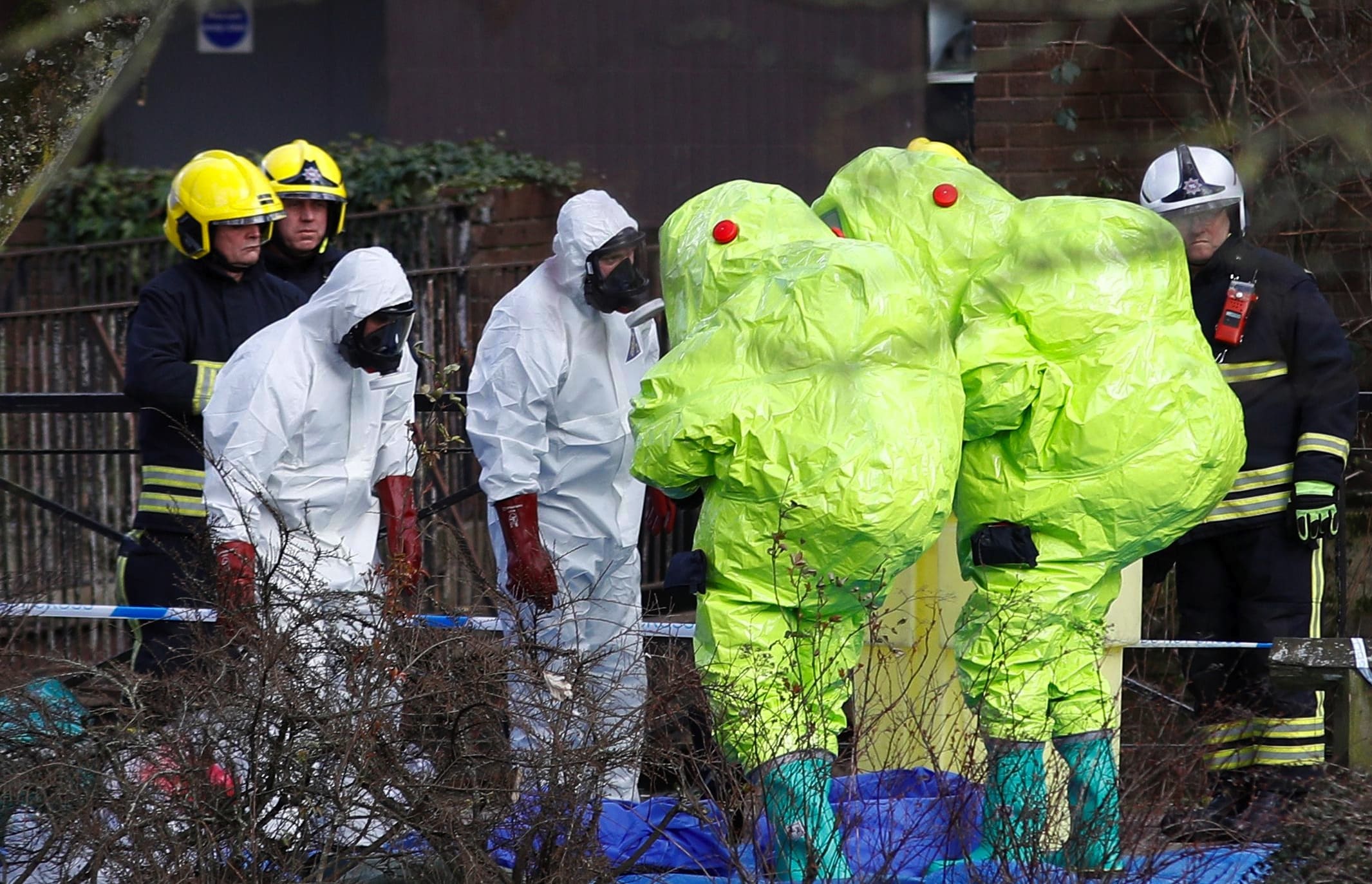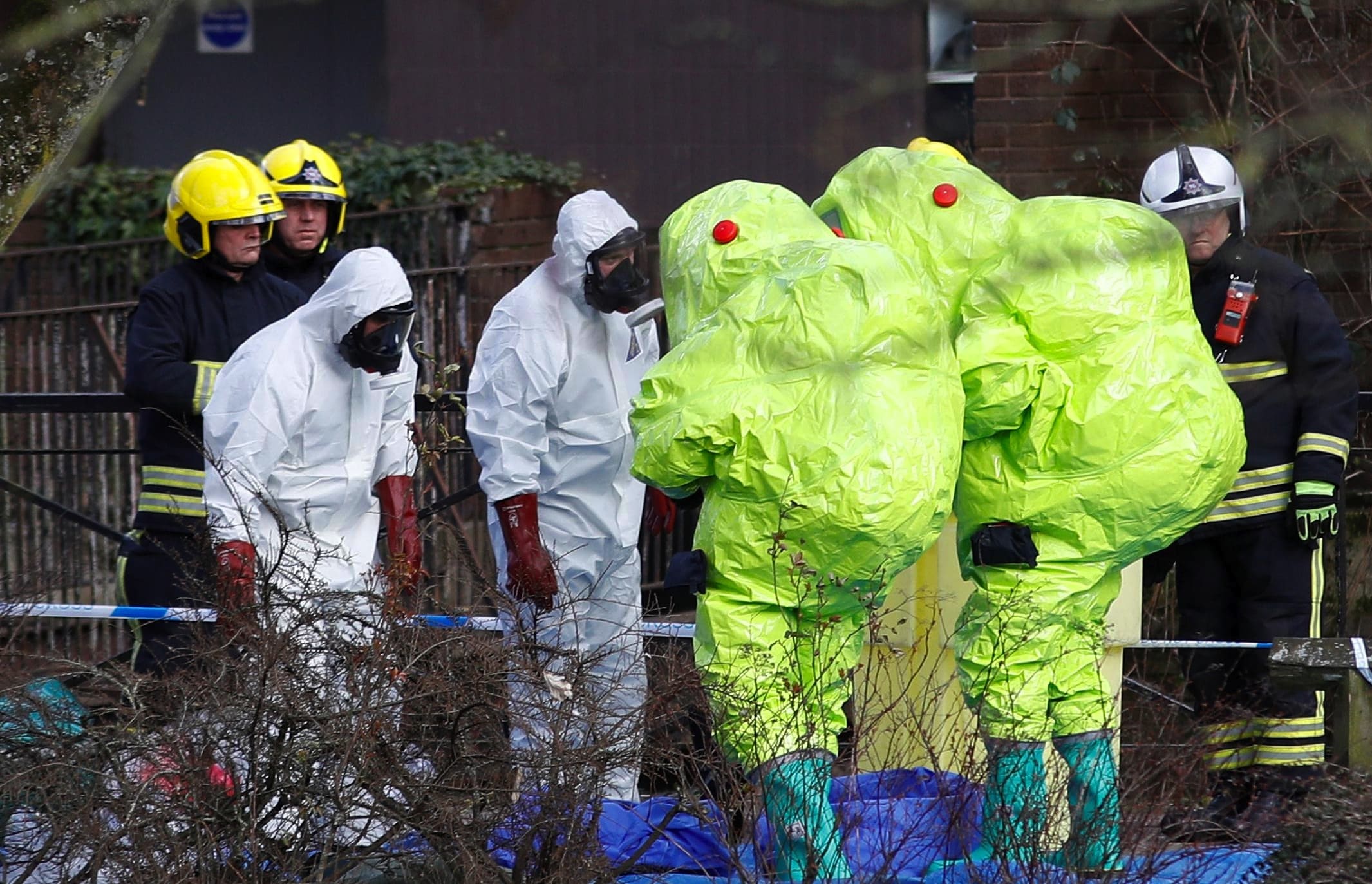I don’t know what happened in Salisbury England on March 4th, but it appears that the British government doesn’t know either. Prime Minister Theresa May’s speech before Parliament last Monday was essentially political, reflecting demands that she should “do something” in response to the mounting hysteria over the poisoning of former Russian double agent Sergei Skripal and his daughter Yulia. After May’s presentation there were demands from Parliamentarians for harsh measures against Russia, reminiscent of the calls for action emanating from the U.S. Congress over the allegations relating to what has been called Russiagate.
This demand to take action led to a second Parliamentary address by May on Wednesday in which she detailed the British response to the incident, which included cutting off all high-level contacts between Moscow and London and the “persona non grata” (PNG) expulsion of 23 “spies” and intelligence officers working out of the Russian Federation Embassy. The expulsions will no doubt produce a tit-for-tat PNG from Moscow, ironically crippling or even eliminating the MI-6 presence and considerably reducing Britain’s own ability to understand what it going on in the Kremlin.
May, who referred to a “Russian mafia state,” has blamed Moscow for the attack even though she made plain in her first speech that the investigation was still underway. In both her presentations, she addressed the issue of motive by citing her belief that the attempted assassination conforms with an established pattern of Russian behavior. She did not consider that Vladimir Putin’s government would have no good reason to carry out an assassination that surely would be attributed to it, particularly as it was on the verge of national elections and also, more important, because it will be hosting the World Cup later this year and will be highly sensitive to threats of boycott. And it must be observed that Skripal posed no active threat to the Russian government. He has been living quietly in Britain for eight years, leading to wild tabloid press speculation that the Kremlin’s motive must have been to warn potential traitors that there are always consequences, even years later and in a far-off land.
To provide additional buttressing of what is a questionable thesis, the case of the assassination of Alexander Litvinenko in London in 2006 has been repeatedly cited by the media on both sides of the Atlantic as evidence of Russian turpitude, but the backstory is not the same. Litvinenko was an FSB officer who fled to the United Kingdom to avoid prosecution in Russia. In Britain, he became a whistleblower and author, exposing numerous alleged Russian government misdeeds. Would the Kremlin have been motivated to kill him? He was seen as a traitor and a continuing threat through his books and speeches, so it is certainly possible. The story of Skripal was, however, completely different. He was a double agent working for Britain who was arrested and imprisoned in 2006. He was released and traveled to the UK after a 2010 spy swap was arranged by Washington and his daughter has been able to travel freely from Moscow to visit him. If the Russian government had wanted to kill him, they could have easily done so while he was in prison, or they could have punished him by taking steps against his daughter.
There are a number of problems with the accepted narrative as presented by May and the media. Merriam-Webster dictionary defines a nerve agent as “usually odorless organophosphate (such as sarin, tabun, or VX) that disrupts the transmission of nerve impulses by inhibiting cholinesterase and especially acetylcholinesterase and is used as a chemical weapon in gaseous or liquid form,” while Wikipedia explains that it is “a class of organic chemicals that disrupt the mechanisms by which nerves transfer messages to organs.” A little more research online reveals that most so-called nerve agents are chemically related. So when Theresa May says that the alleged agent used against the Skripals as being “of a type” associated with a reported Russian-developed chemical weapon called Novichok that was produced in the 1970s and 1980s, she is actually conceding that her own chemical weapons laboratories at Porton Down are, to a certain, extent, guessing at the provenance and characteristics of the actual agent that might or might not have been used in Salisbury.
Beyond that, a military strength nerve agent is, by definition, a highly concentrated and easily dispersed form of a chemical weapon. It is intended to kill or incapacitate hundreds or even thousands of soldiers. If it truly had been used in Salisbury, even in a small dose, it would have killed Skripal and his daughter as well as others nearby. First responders who showed up without protective clothing, clearly seen in the initial videos and photos taken near the site, would also be dead. After her first speech, May summoned the Russian Ambassador and demanded that he address the allegations, but Moscow reasonably enough demanded a sample of the alleged nerve agent for testing by relevant international bodies like the Organization for the Prohibition of Chemical Weapons before it could even respond to the British accusations. It was a valid point even supported in Parliament questioning by opposition Labour leader Jeremy Corbyn, but May and her government decided to act anyway.
May’s language also conveys uncertainty. She used “it appears” and also said it was “highly likely” that Moscow was behind the poisoning of Skripal but provided no actual evidence that that was the case, presumably only assuming that it had to be Russia. And her government has told the public that there is “little risk” remaining over the incident and that those who were possibly exposed merely have to wash themselves and their clothes, hardly likely if it were a military grade toxin, which gains it lethality from being persistent on and around a target. She made clear her lack of corroboration for her claim by offering an “either-or” analysis: either Russia’s government did it or it had “lost control” of its nerve agent.
As noted above, May’s argument is, to a certain extent, based on character assassination of Russians – she even offered up the alleged “annexation” of Crimea as corroboration of her view that Moscow is not inclined to play by the rules that others observe. It is a narrative that is based on the presumption that “this is the sort of thing the Russian government headed by Vladimir Putin does.” The British media has responded enthusiastically, running stories about numerous assassinations and poisonings that ought to be attributed to Russia, while ignoring the fact that the world leaders in political assassinations are actually the United States and Israel.
There are a number of other considerations that the May government has ignored in its rush to expand the crisis. She mentioned that Russia might be somewhat exonerated if it has lost control of its chemical weapons, but did not fully explain what that might mean. It could be plausible to consider that states hostile to Russia like Ukraine and Georgia that were once part of the Soviet Union could have had, and might still retain, stocks of the Novichok nerve agent. That in turn suggests a false flag, with someone having an interest in promoting a crisis between Russia and Britain. If that someone were a country having a sophisticated arms industry possessing its own chemical weapons capability, like the United States or Israel, it would be quite easy to copy the characteristics of the Russian nerve agent, particularly as its formula has been known since it was published in 1992. The agent could then be used to create an incident that would inevitably be blamed on Moscow. Why would Israel and the United States want to do that? To put pressure on Russia to embarrass it and put it on the defensive so I would be forced eventually to abandon its support for President Bashar al-Assad in Syria. Removing al-Assad is the often-expressed agenda of the Israeli and American governments, both of which have pledged to take “independent action” in Syria no matter what the United Nations or any other international body says. The redoubtable Nikki Haley is already using the incident to fearmonger over Moscow’s intentions at the U.N., warning that a Russian chemical attack on New York City could be coming.
And to throw out a really wild possibility, one might observe that no one in Britain had a stronger motive to generate a major confrontation with a well-defined enemy than Theresa May, who has been under fire by the media and pressured to resign by many in her own Conservative Party. Once upon a time suggesting that a democratically elected government might assassinate someone for political reasons would have been unthinkable, but the 2016 election in the United States has demonstrated that nothing is impossible, particularly if one is considering the possibility that a secret intelligence service might be collaborating with a government to help it stay in power. An incident in which no one was actually killed that can be used to spark an international crisis mandating “strong leadership” would be just the ticket.
Reprinted with permission from Unz.com.


